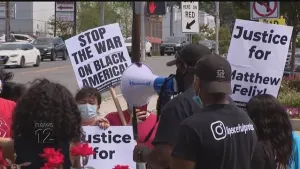More Stories
Allura Leggard is a 20-year-old college student studying broadcast journalism and African diaspora. Leggard is from Sag Harbor, a place where she describes racism being expressed in more subtle ways.
"I like to characterize Sag Harbor as being northern racism, meaning that it won't be as abrupt - like they won't say the N-word to you or like anything like that. But it'd be like the microaggressions that they will do and commit that is so apparent."
Leggard says she wants people to have a moment of realization about privilege as a result of the protests.
MORE: Reflections on Race: 'Anything that I want for myself, I want for you'
MORE: Reflections on Race: 'People should be more aware.'
MORE: Reflections on Race: 'I want people to understand that we're human'
MORE: Reflections on Race: 'People should be more aware.'
MORE: Reflections on Race: 'I want people to understand that we're human'
"I'm going to put this in terms like when I was first in a class with my professor and she said, when she first started to understand racism and the inequality that people of color are facing than white people, it's like a light switch turned on and you can't turn it off," says Leggard. "I'm hoping after, like as these protests are going on, because they've been going on for a while now, but I'm hoping as these protests continue to go on, and people are donating and also voicing their opinions and what's right, to others, that the light switch for them goes on and it doesn't turn off. They will see that there are certain privileges that one is granted, compared to others and I'm hoping that, that is something that we learn."
Leggard says she wants people to see her as a human and that she wants to be treated equally and fairly as others.
"I am a person, like of course I am Black and I'm a woman, but I am also a person. I deserve to be treated equally, just as fairly as my white friend and as my Latinx friend and as my Native American friend. Like in the end of the day, like I am a human. I think it's also important to understand that of course like equality is the main, is what we're all hoping for, but I also think that we have to focus on the term equity itself. So already, Black people are put at this standing where it's just right here and then white people are already put on this standing that's right here, I understand the terms of equality where we're just both equal and we always are, but also there has to be equity with it, so we have to reach into the same category for us to go into equality."
Leggard hopes race relations will improve and go beyond people posting to social media about racial injustice.
"I'm hoping, I can't say for sure that anything will change," says Leggard. "I'm going to have to, we have to give it more time, because right now people are still in the midst of being social media activists and we need people to be more prominent activists in understanding privilege, outside of just social media as well."
Leggard told News 12 that she realized after going to college and learning about racism that she had grown up with it more than she had known. She points to experiences such as being told she was pretty for a Black girl and people wanting to touch her hair. She also discussed her hope for change in the education system so that more people learn Black, Latinx and Native American history.
More from News 12
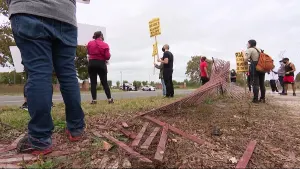
Long Island group gathers at Brentwood State Park to demand justice for Breonna Taylor
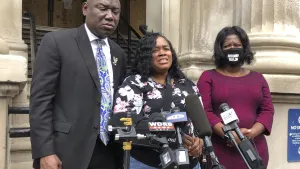
City to pay millions to Breonna Taylor's mom, reform police
2:46
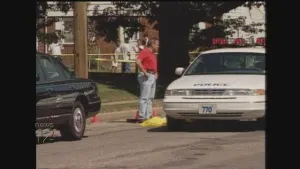
Nassau District Attorney's Office to reinvestigate 1998 Hempstead police-involved shooting
1 day, 11 hours
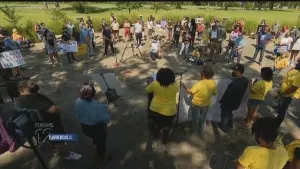
Protesters hold rally outside of Dennison Building in Hauppauge to fight for police accountability
21:27:47
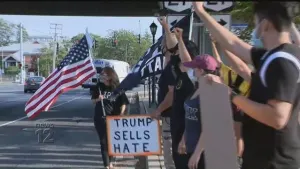
Merrick rally demands justice for Jacob Blake, Black man shot 7 times by Wisconsin police
1 day, 15 hours
